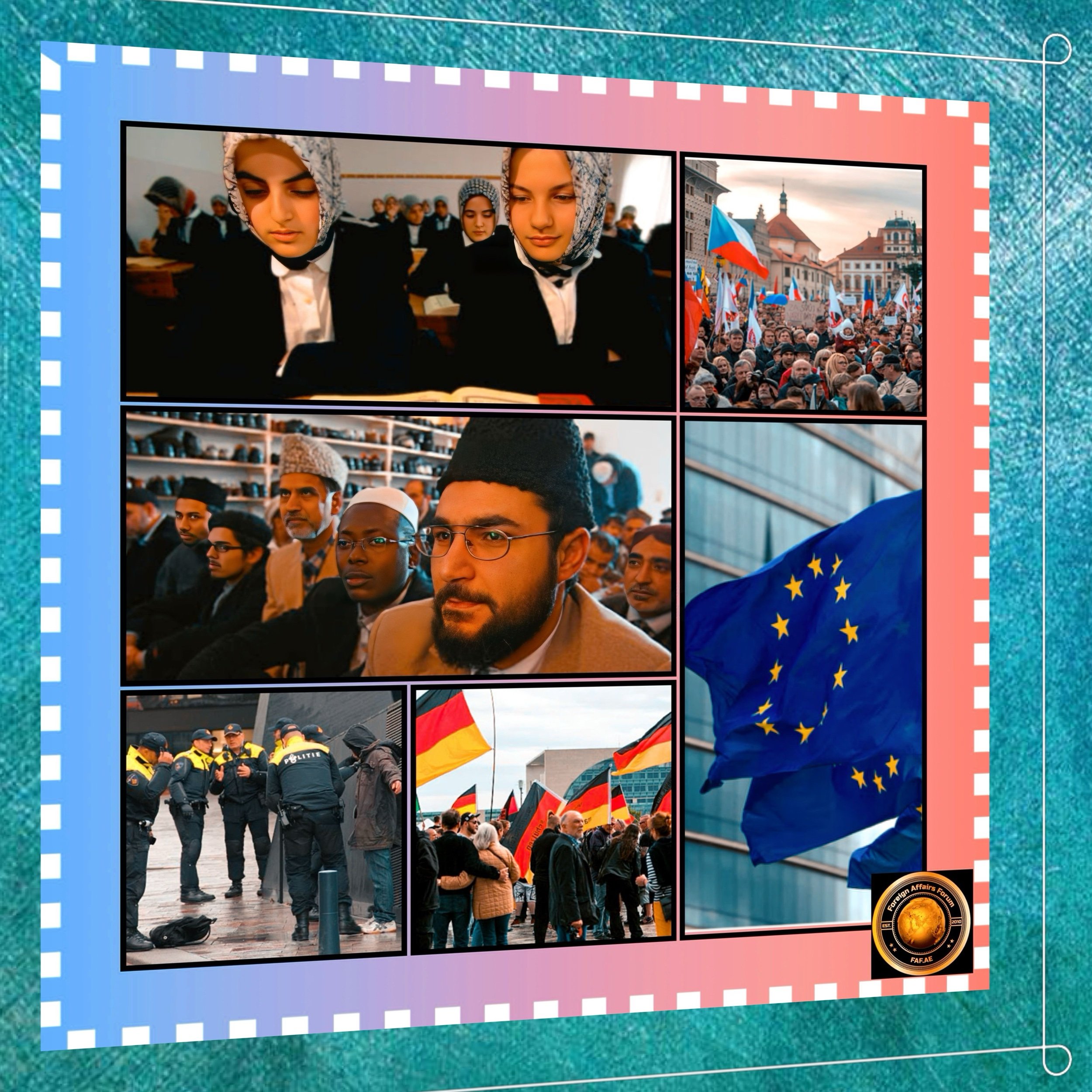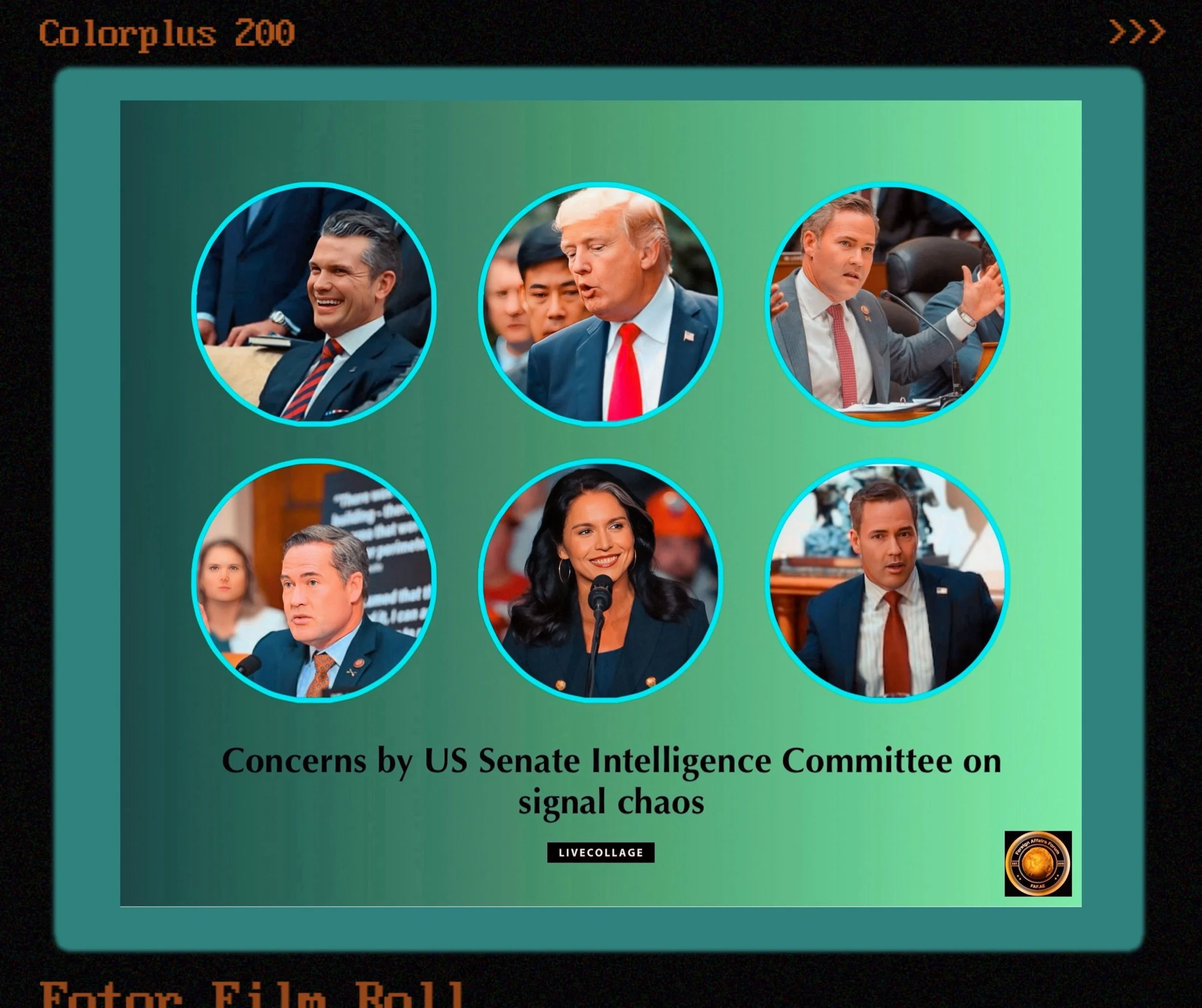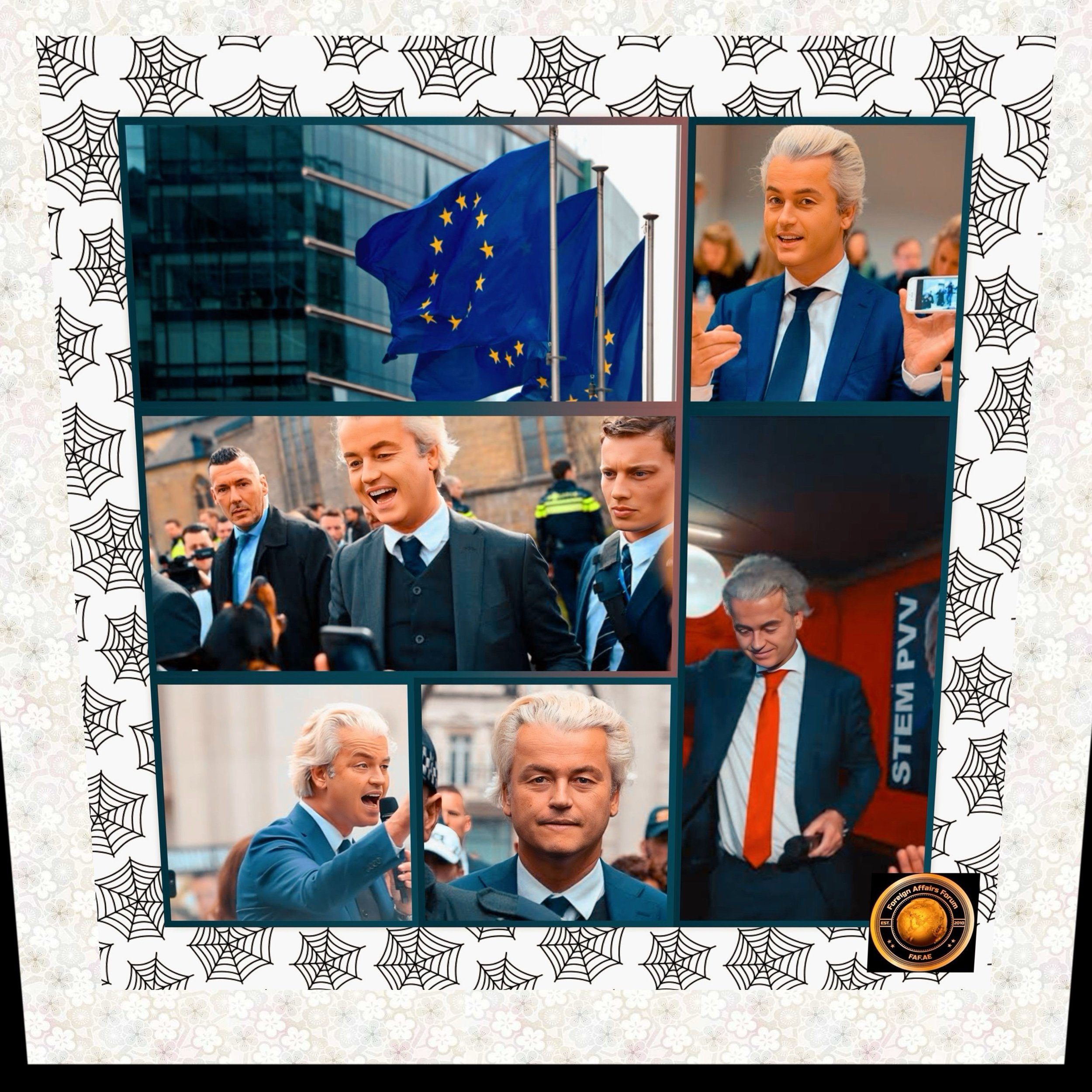Euro-Islam - The Dynamics of Islam in Europe: History, Integration Challenges, and Growing Concerns
Introduction
Before delving into this complex topic, it’s essential to understand that Europe’s relationship with Islam spans many centuries and encompasses diverse perspectives ranging from integration concerns to cultural preservation debates.
FAF shares the historical context of Islam in Europe, current integration challenges, and the varying European responses to what some perceive as “Islamization.”
Historical Context of Islam in Europe
Early Muslim Presence and Conquests
Islam’s presence in Europe dates back to the 7th century, beginning with the Muslim conquest of Persia, which expanded into the Caucasus.
The religion gained its first substantial foothold in continental Europe in 711 with the Umayyad conquest of Hispania (modern-day Spain and Portugal).
Arabs renamed this territory al-Andalus, establishing various emirates that would persist for centuries. Islam also spread through Sicily, creating the Emirate of Sicily, which existed from 831 to 1091.
The Ottoman Empire, which began in the 14th and 15th centuries, marked another significant phase of Islamic expansion in Europe.
After capturing Constantinople in 1453, the Ottomans established Islam as the state religion and expanded into Southeastern Europe, conquering portions of the Serbian Empire, Bulgarian Empire, and Byzantine territories.
Ottoman expansion reached its zenith in the 16th century, stretching as far north as Podolia by the mid-17th century.
Modern Muslim Communities in Europe
The first significant networks of Muslims in Western Europe emerged after 1918, following World War I, which brought thousands of Muslims to the continent and institutionalized Islam in Europe.
These communities established three primary spaces: mosques as physical, religious spaces, associations as legal spaces, and media outlets as intellectual spaces.
Today, the 28 countries of the European Union are home to approximately 25 million Muslims.
Historically significant European Muslim populations include ethnic groups such as the Bosniaks, Turks, Tatars, and Albanians.
Debates on Muslim Integration and European Values
The Concept of “European Islam”
The terms “European Islam” and “Euro-Islam” were introduced at a conference in Birmingham in 1988.
Scholars have contributed to this concept, including Bassam Tibi, who coined the term in 1992 to describe a type of Islam that embraces Western political values such as liberal democracy, religious pluralism, secularism, and the separation of religion and state.
Tibi argues that Muslims in Europe must create a specific form of Islam that can coexist with European values, preventing the “ghettoization” of Muslims, which he sees as having potential for conflict.
Similarly, Professor Jørgen S. Nielsen suggests that “Europeanizing” Islam requires changes in gender relations, parent-child relationships, attitudes toward people of other religions, and perspectives on the state.
Clash of Values
Some observers point to fundamental tensions between European secularism and specific interpretations of Islam.
One analysis notes, “Secularism, understood and practiced in Europe, is not value-neutral. It asks conservative Muslims to be something that they’re likely not.”
This perspective suggests that European secularism assumes religious practice is primarily personal and private, which may conflict with interpretations of Islam that view religion as having a public and political dimension.
A 2013 study by Wissenschaftszentrum Berlin für Sozialforschung found that two-thirds of Muslim respondents in several European countries believed religious rules were more important than civil laws, while three-quarters rejected religious pluralism within Islam.
This suggests potential tensions between specific Islamic perspectives and European legal and cultural norms.
Growing Concerns and Responses
Opposition Movements
Concerns about Islamic influence in Europe have led to the formation of groups like Stop Islamisation of Europe (SIOE), a pan-European organization with the stated goal of “preventing Islam from becoming a dominant political force in Europe.”
Similar national groups have emerged in various countries, including Norway, Denmark, and others.
These groups typically express concerns about the compatibility of Islamic practices with European values and often advocate for restrictions on immigration from Muslim-majority countries.
Their motto—“Racism is the lowest form of human stupidity, but Islamophobia is the height of common sense”—reflects their position that opposition to Islam is based on rational concerns rather than prejudice.
Government Approaches
European countries have adopted varying approaches to Muslim integration.
Following terrorist attacks in 2007, the European Commission began exploring ideas for creating a “European Islam” that would be more tolerant and compatible with European values.
This initiative, first proposed by then-French interior minister Nicolas Sarkozy in 2006, sought to develop an Islam that would better align with European political and cultural norms.
Poland has taken an unyielding stance, refusing to accept significant numbers of Muslim refugees despite EU pressure.
Polish officials justify this position as necessary to protect the country’s cultural identity and address security concerns related to radical Islam.
This approach has resonated with other Central and Eastern European countries, particularly Hungary and Slovakia, forming what’s sometimes called the “Visegrád Group.”
Rising Islamophobia
Critics argue that legitimate concerns about integration have fueled anti-Muslim sentiment across Europe.
Since October 7, 2023, Islamophobia in the UK has reportedly surged by 600%.
Some observers connect this trend to the rise of far-right political movements across Europe, from Geert Wilders in the Netherlands to increasing support for nationalist parties in Sweden and Greece.
Those concerned about Islamophobia argue that political rhetoric often inflames tensions rather than promoting unity.
They suggest that xenophobia is becoming normalized in political discourse and increasingly central to winning elections across Europe.
Integration Challenges and Future Prospects
Conflicting Visions of Integration
The debate about Muslim integration in Europe reflects more profound questions about multiculturalism versus assimilation. As one source notes, “Both the multiculturalism and assimilation methods failed, and an integration policy still needs to be developed.”
Bassam Tibi’s vision of “Euro-Islam” represents one approach, promoting the embrace of European values while maintaining the Islamic faith.
However, in 2016, Tibi announced “I capitulate” in a German political magazine, stating that the “headscarf Islam” had triumphed over the “Euro-Islam,” suggesting pessimism about the progress of his vision.
The Role of Islamic Fundamentalism
Concerns about Islamic fundamentalism complicate integration efforts. EU Counter-terrorism Coordinator Gilles de Kerchove stated in 2017 that there were more than 50,000 radicals and jihadists in Europe.
French authorities identified 15,000 individuals on security threat lists belonging to Islamist movements, while UK authorities estimated 23,000 jihadists residing in the country.
However, many Muslims in Europe are “broadly content with the status quo and just want to live their lives peacefully,” highlighting the danger of generalizing European Muslim communities.
Geert Wilders says Islamism is Europe’s biggest threat?
Conclusion
The relationship between Islam and Europe remains complex and multifaceted. Historical patterns of conquest and migration have created diverse Muslim communities across the continent, while contemporary debates focus on questions of integration, security, and cultural identity.
European responses range from promoting a “European Islam” that embraces Western values to restricting Muslim immigration out of concerns about cultural preservation.
Meanwhile, rising Islamophobia presents challenges for Muslims living in Europe, regardless of their perspectives on integration.
As Europe grapples with these issues, finding approaches that balance respect for diversity with shared civic values remains a significant challenge. The debate reflects broader questions about European identity in an increasingly interconnected and multicultural world.





